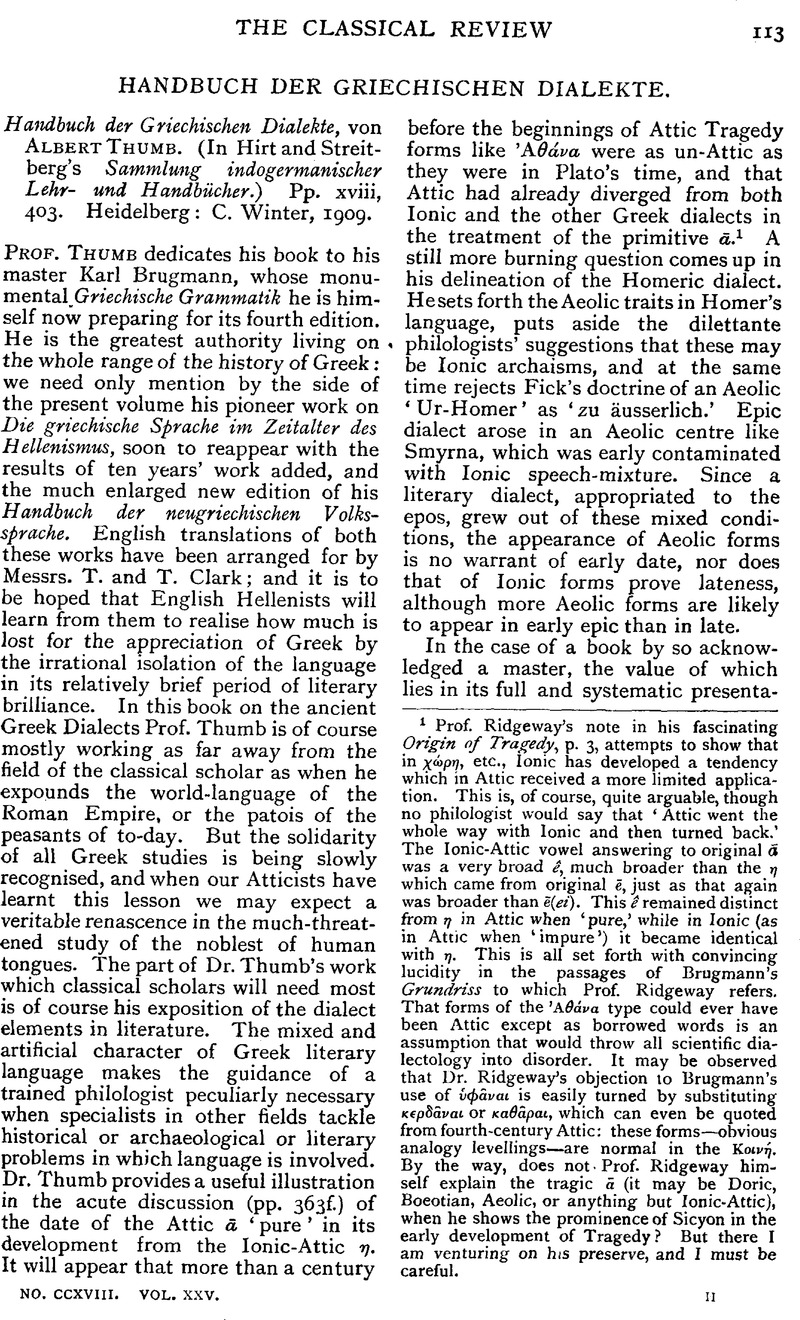No CrossRef data available.
Published online by Cambridge University Press: 27 October 2009

1 Prof. Ridgeway's note in his fascinating Origin of Tragedy, p. 3, attempts to show that in χωρη, etc., Ionic has developed a tendency which in Attic received a more limited application. This is, of course, quite arguable, though no philologist would say that ‘Attic went the whole way with Ionic and then turned back.’ The Ionic-Attic vowel answering to original a was ā very broad ê, much broader than the η which came from original ē, just as that again was broader than ē(ei). This ê remained distinct from η in Attic when ‘pure,’ while in Ionic (as in Attic when ‘impure’) it became identical with η. This is all set forth with convincing lucidity in the passages of Brugmann's Grundriss to which Prof. Ridgeway refers. That forms of the ‘Aθ⋯να type could ever have been Attic except as borrowed words is an assumption that would throw all scientific dialectology into disorder. It may be observed that Dr. Ridgeway's objection to Brugmann's use of ὑφ⋯ναι is easily turned by substituting κερδ⋯ναι or καθ⋯ραι, which can even be quoted from fourth-century Attic: these forms—obvious analogy levellings—are normal in the κοιν⋯. By the way, does not. Prof. Ridgeway himself explain the tragic ā (it may be Doric, Boeotian, Aeolic, or anything but Ionic-Attic), when he shows the prominence of Sicyon in the early development of Tragedy? But there I am venturing on his preserve, and I must be careful.